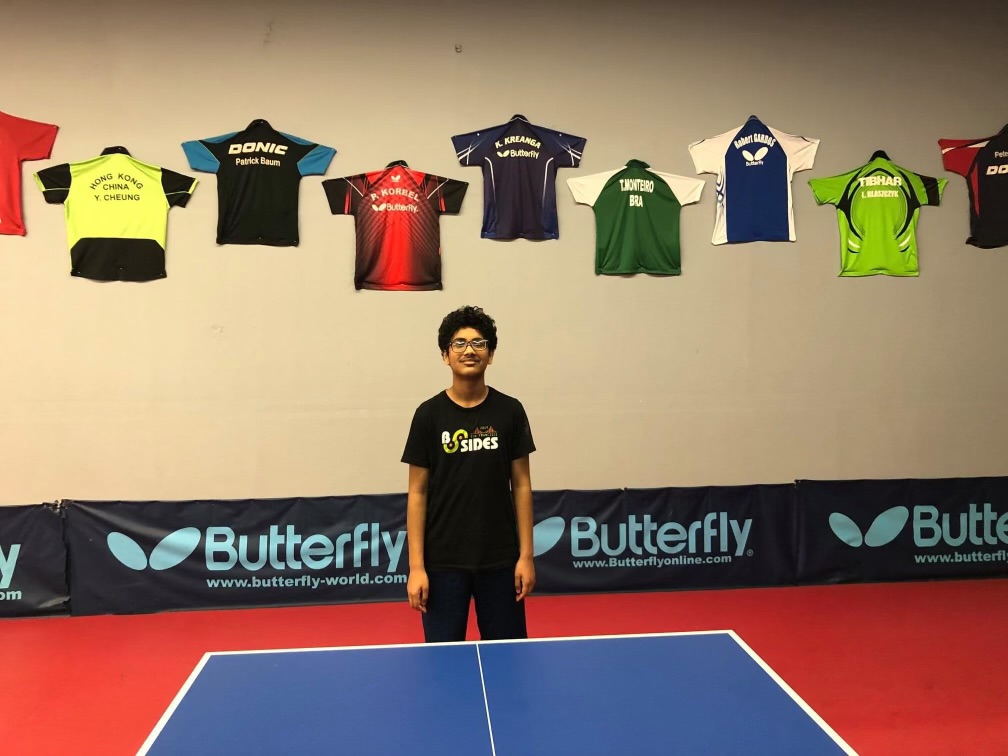I distinctly remember my first game, when I was 9 years old: my father and I were at a table tennis club, picking up my brother, and before the club closed for the day, my dad called me over to play a couple of points. I recall the dim lighting of the area, the huge stature of the table and especially the helplessness I felt when I swung the paddle and missed the ball. Despite the fact it was my first time playing, I could not stand the humiliation of losing. To avoid that shame, I dug through a pile of excuses to make sure that I didn’t have to play the next time he asked me to.
Until ninth grade, I had only played table tennis recreationally and therefore did not put much effort into increasing my rating: the basic measurement for how good a player is at the game. Depending on whether the player that lost in the match is of a higher rating or not, the rating of the player that won will increase proportionally. In table tennis specifically, there are separate ratings for both leagues and tournaments.
I realized when I was 15, that I had more talent and potential in table tennis in contrast to the other sports I participated in. By the time the volleyball and cross country season ended, I realized that I could improve much faster in table tennis than in the other sports. This realization pushed me to prioritize table tennis over the other sports and play more competitively.
However, during the first couple of months of playing at the bigger tournaments, that fear of losing that I recalled from my first matches stopped me from truly enjoying the game. I always felt disappointed when I lost, and I associated those negative feelings with my opponent as well, which made it hard to accept my loss and make friends with others. All of these factors accentuated my losses while diminishing my wins
The first big change I had in my mindset was when my dad pointed out that I never celebrated winning any of my points — I would only get mad at myself when I lost points. At first, I didn’t think much of it and even tried to argue with him that winning one point wasn’t a big deal, and wasn’t worth being celebrated. However, this conversation with my father helped me realize that focusing too much on losing was actually making my games even more stressful, which then made me more indecisive during matches.
In the matches after that conversation, I implemented his teachings not only in my mindset while playing but also after losing them. When I lost in a match, I would attempt to converse with my opponent about table tennis so that I could learn from their techniques. It took me a while to get to know my opponents better but in the end I would feel happy for them when they would win, and I ended up not only celebrating my wins but others’ wins as well.
Although the habit my dad spotted was so small that I initially felt that it didn’t matter, it helped me put into perspective the balance between winning and losing. I realized that no matter how hard I worked, I could not win without losing. It took me seven long years, but I finally realized that in order to be both competitive and friendly, I needed to be able to contemplate my losses without taking them to heart. This didn’t mean that I shouldn’t reflect on what I could improve — instead, I could simply see losses as a small portion of my journey.
In the past there were times when I felt like giving up on playing table tennis after a loss, if it wasn’t for those tough times, I never would have gained the resilience to face similar experiences in other parts of my daily life. For example, after receiving a bad grade on a test, having that resilience allows me to have a faster recovery from the sadness and place more focus on the future. My dad used to tell me that I should think of my life as a book and each loss is just a page in that book, and instead of re-reading that same page over and over again, I should flip to the next chapter, thus forgetting the past.
In table tennis, I felt the most despair, but I know that in school and other extracurriculars, everyone is bound to face a similar feeling of hopelessness, perhaps because of failure.
Whether that failure happens during high school, college or even during a career, everyone will come to the same feeling. I’ve now learned that no one can constantly progress at the same rate throughout their entire lives and in order to accept the losses that shatter an ego, everyone must face that despair over and over again to realize that one failure is just a speck on the timeline.










